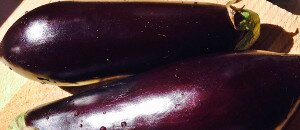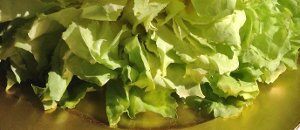Written by Maria Pistocchi — Friday, August 10th, 2012
A brief history of vinegar
From Hannibal to your table, the story of an essential ingredient of the Mediterranean cooking.
The vinegar has an impressive ancient history. It is repeatedly quoted from the Bible and it was found in an Egyptian vase of ten thousand years old. This means that the Egyptians, as well as the Babylonians and the Persians, knew and used vinegar for the storage of food. Moreover, only with vinegar the food could be transported over long distances. Vinegar was also mixed with water as a refreshing drink, that was widely used by farmers and travelers of the past.
Back to the roots of vinegar: the vinegar in Greece

In the ancient Greece, the vinegar was called Oxycrat, the most common drink of the people. It was a mixture of water, vinegar and honey stored in special vessels named oxydes.
Hippocrates, the "Father of Medicine", whose teachings dominated western civilization for more than two thousand years, prescribed it as a cure in case of wounds, sores and respiratory ailments.
The vinegar in Rome
The Romans drank the posca, a refreshing mixture of vinegar and water, whose salesmen was like our coconut sellers. They said that the posca gave strength, while wine gave drunkenness:
posca fortem, vinum ebrium facit.
A sponge soaked in a praetorian posca was given to Jesus on the cross: not cruelty, but an act of piety by a humble soldier towards a man who lay dying crucified.
On the roman table, or on the tables of their famous banquets, there always was the acetabulum: a bowl with a glass and half of capacity full of vinegar. In that bowl each guest dipped pieces of bread to aid digestion.
Recipes and tutorials from the Empire

A roman guy called Apicius was known as one of the early gourmets of the first century AD. He (apparently) has left us a collection of recipes, almost all of them based on vinegar. His near-contemporary Columella wrote lots of ancient how-to's (:)) on vinegar in which was allowed the use of the acid yeast to promote fermentation. By immersing incandescent bars and cones of glowing pine trees into the wine, they were able to purify it from unpleasant odors.
The Romans had various kinds of vinegar sauces, from the simplest to the famous garum, a fiery mix of elements mixed by vinegar. Vinegar was also used to flavor acetarie, salads mixed with meat and vegetables served as a break between a series of courses.
With a procedure that we now call marination, the Romans employed vinegar to keep the fried fish.
Hannibal Barca featuring vinegar

The roman legionaries made extensive use of vinegar. They ate the moretum salad made with garlic, onion, rue, goat cheese and cilantro, dressed with oil and vinegar. It was their usual meal before the battle.
During military campaigns vinegar was used by the legionaries as thirst-quencher, diluted with water and also for cleaning the body. It treated both the effects of the inconvenience of camp life and the light wounds.
Hannibal Barca, the famous Carthaginian general crossed the Alps with infantry, cavalry and elephants in the decisive duel between Carthage and Rome. This is known history. Less known is how he managed the challenge! There were narrow and winding streets, absolutely impassable for elephants. So Hannibal piled several logs between the large rocks that blocked the path and ignited them. Then, on the red-hot rocks he poured some vinegar to make them soft and friable; this gimmick allowed the soldiers to break the boulders and open a passage for the troops and the animals. Really smart!
Modern (or less) uses of vinegar
Vinegar is an essential ingredient of the Mediterranean cooking and has many virtues. It is a natural degreaser, a disinfectant, an economic and ecological deodorizer and has antimicrobial properties, hence is used in many canned foods. It can easily replace most of the cleaning products that circulate in our homes.
Feel free to clean your house with vinegar, but remember that the white one is more suitable. Always use gloves: vinegar causes skin irritation! And you cannot use vinegar on stone, marble and wood, as long as you don't want to split them, as Hannibal did :D
Sources
http://www.ponti.com/Aceto_storia.asp
http://ecologiaerisparmio.blogspot.it/2011/01/aceto-usi-pulizie-ecologiche.html
http://www.mammafelice.it/2009/10/22/tutti-gli-usi-dellaceto-bianco/
http://www.uominicasalinghi.it/index.asp?pg=1274
http://forum.pianetamamma.it/economia-domestica/30719-i-mille-usi-dellaceto.html
http://www.planetinfo.info/natura-e-ambiente/76-i-mille-usi-dellaceto.html
http://www.salmo69.com/2009/06/usi-dell-aceto-come-e-dove-utilizzarlo.html
http://www.acetificiobrivio.it/aceto_bambini.php
Comments
latest articles
An extremely easy eggplant recipe
It's another easy way to cook eggplant without frying.
Roman Scarola green lettuce salad recipe
This is a tasty green salad with scarola lettuce from Rome.
Italian street food: Genoese focaccia recipe
Simplicity tastes good!
Father's Day traditions from a small old Sicilian village
A very peculiar recipe from Sicily, made especially on Saint Joseph’s day.
A brief history of Gelato
Gelato: what a passion! Do you know where it comes from?






